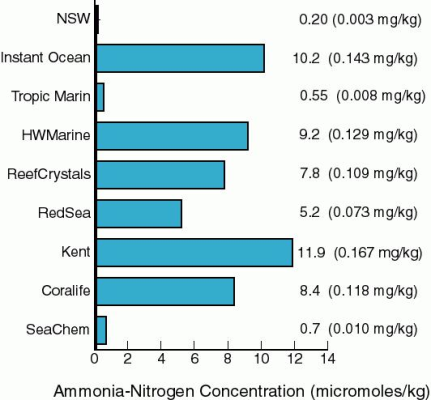Randy Holmes-Farley
Reef Chemist
View Badges
Staff member
Super Moderator
Excellence Award
Expert Contributor
Article Contributor
R2R Research
My Tank Thread
- Joined
- Sep 5, 2014
- Messages
- 67,377
- Reaction score
- 63,720
Likely as a contaminant in magnesium chloride. Maybe in other components as well.



















